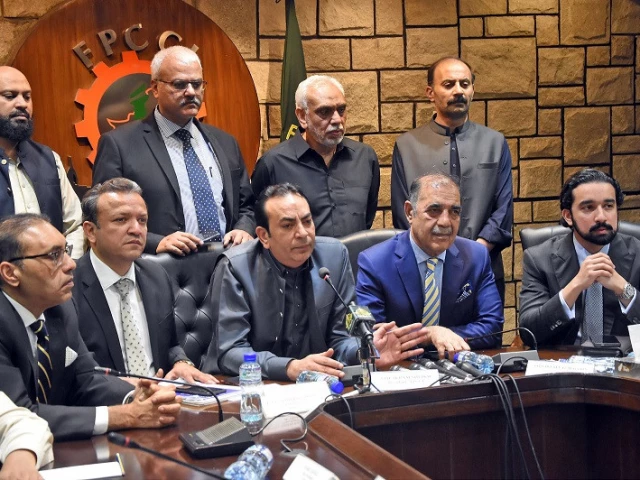FBR Powers Spark Nationwide Strike, Businesses Shut Down
The committee formed to address concerns related to the Finance Act 2025 will play a crucial role in resolving the issues, with the business community waiting to see the outcome of its deliberations. The All Pakistan Anjuman-e-Tajiran has announced protest demonstrations across the country on July 26 against the new amendments in the finance bill, indicating that the protests may continue until the demands are met.

The business community in Pakistan is protesting against the government's taxation measures, with a strike call resulting in a near-complete shutdown of commercial activities in Karachi and Lahore, while the government has formed a committee to address concerns related to the Finance Act 2025.
The Karachi Chamber of Commerce and Industry (KCCI) and the Lahore Chamber of Commerce and Industry (LCCI) had called for a strike against the Federal Board of Revenue's (FBR) extraordinary powers under the Finance Act 2025, which they claim are "anti-business" and will harm the economy. The strike was supported by chambers in several other cities, with nearly 90% of commercial activity suspended in Karachi, including wholesale markets, retail shops, industries, and fruit and vegetable markets.
The government had agreed to form a grievance body to address concerns over the Finance Act 2025, but the KCCI maintained its call for a strike, citing lack of written assurance. The FPCCI, however, had agreed to call off the nationwide strike after talks with the government, citing progress on several amendments to the act. A four-member committee has been formed to handle remaining issues and ensure a proper grievance redressal mechanism is in place.
The business community's core demands include the immediate suspension of certain sections of the Sales Tax Act, the withdrawal of a section that penalises cash-based transactions, and the restoration of the Final Tax Regime for exporters. The government has been warned that failure to meet these demands could lead to further nationwide consultations on future actions.
The strike has been described as a historic show of unity and resistance by the business community, with the LCCI President calling it a defining day in the struggle for economic justice. The economic cost of the strike could be significant, with Karachi contributing around 70% of federal tax revenues and 54% of national exports.